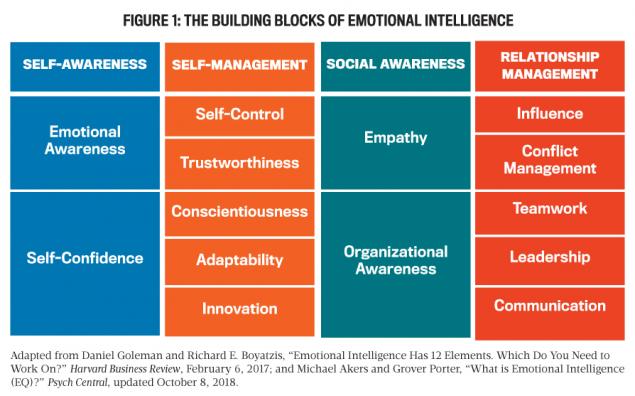“It is very important to understand that emotional intelligence is not the opposite of intelligence, it is not the triumph of heart over head – it is the unique intersection of both.” — David Caruso

Creating a culture of Emotional Intelligence within your organization will have a positive impact on interpersonal and leadership skills as well as overall job satisfaction.
Emotional intelligence (EQ), as defined by Peter Salovey and John Mayer, is the ability to recognize, understand and manage our own emotions; and influence the emotions of others. It may be the key to retaining the most important part of your workforce, the direct support professionals, your front line staff.
Understanding IQ and EQ in Human Services
A DSP with a high IQ could be a great asset to an organization. But when hiring for front line workers, it is the “soft skills” like flexibility and creativity which sets candidates apart.
A DSP with a high EQ will be a team player. They will be able to adapt to changing environments, especially volatile ones. They will be able to respond to challenging situations. They will communicate effectively with their colleagues, supervisors and the individuals they support.

Tips and Techniques
Self-Awareness
- Pay attention to your output. Recognize how your tasks are impacting your emotions and how you then react.
Calm, Cool and Communicative…but not Necessarily All At Once
- In direct support, often the only area a staff member has control over is their own responses to the stimuli occurring around them. It can be challenging to express frustration in positive, professional ways. When implementing a culture of Emotional Intelligence, training effective communication is an important part of the process.
Remember the Soft Skills
- Focus on empathy
- Listen actively
- Remember the positive aspects of the job
- Be open to change
Self-Regulation
- Establish a cool down technique to support you in times of stress. The 4-7-8 breathing technique for example.

In Closing
Seventy-five percent of careers are derailed for reasons related to emotional competencies, including inability to handle interpersonal problems; unsatisfactory team leadership during times of difficulty or conflict; or inability to adapt to change or elicit trust. — Center for Creative Leadership
People skilled in Emotional Intelligence are better equipped to manage the roles and responsibilities of the Human Service field. Establishing teams and providing leadership with a high Emotional Intelligence can safeguard against turnover and ongoing performance issues.
Mindfulness and open communication are essential pieces. If DSPs are working each day in a chaotic environment, it can be challenging to develop this technique. With a largely reactive workload, providing the opportunity for your workforce to learn, develop and hone these skills could make a tremendous difference on retention and engagement.
Focusing on emotional intelligence can also mitigate the exposure to compassion fatigue and burnout. Using the concepts within the Emotional Intelligence model better equips us all to recognize our needs and the needs of others. When this concept blooms in an organization the culture will be fueled by effectiveness and understanding.
For more information check out The EI Institute.
